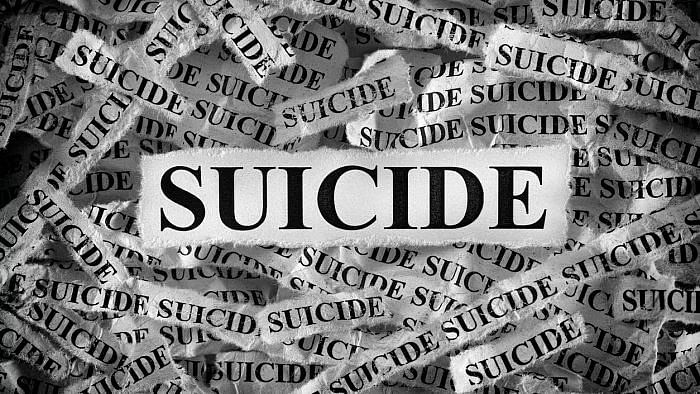
Representative image with the word 'suicide'.
Credit: iStock Photo
New Delhi: With every third Indian post-graduate medical student having a suicidal thought, a National Medical Commission task force has suggested a more relaxed duty schedule for resident doctors. It includes 7-8 hours of daily sleep and once-a-year family vacation to help students cope up with the mental stress.
While carrying out an online survey involving over 30,000 under-graduate and post-graduate medical students as well as 7,000 plus faculty members, the task force found that 16 per cent of MBBS students voluntarily disclosed having a suicidal thought, but the number rose sharply to 31 per cent in MD/MS students.
“Medical students face immense stress and challenges that often go unrecognised. Many of our brightest minds struggle silently, some even to the point of contemplating suicide. This is a reality that we can no longer ignore,” NMC chairman B N Gangadhar notes.
The task force report that was submitted to the NMC on Wednesday mentioned that an alarmingly high 27.8 per cent of UG students and 15.3 per cent of PG students voluntarily indicated having a diagnosed mental health disorder.
More than 74 per cent of UG students also deal with the fear of social isolation and 56 per cent of MBBS students struggle to find a friend.
The stress level increases among students pursuing the MD or MS degrees. Over 10 per cent of 5,337 such students interviewed in the survey admitted that they planned suicidal attempts in the past one year.
A significant majority of postgraduates (64 per cent) reported that workload adversely affected their mental health and well-being. Also half of PG students have financially dependent families, adding to their stress.
Though mental health counsellors are available in most of the medical colleges, over 40 per cent of the PG students are uncomfortable in seeking professional help either due to stigma or lack of trust in the available service.
Chaired by Suresh Bada Math, professor of psychiatry at the National Institute of Mental Health and Neurosciences, Bengaluru, the task force on the mental health and well being of students recommended 50 ways to lower the mental stress level.
One of the suggestions is to relax the duty hours for residents.
“Residents work no more than 74 hours per week, with no more than 24 hours at a stretch. This includes one day off per week, a 24-hour duty, and 10-hour shifts for the remaining days. Ensuring 7-8 hours of daily sleep for medical students is crucial for their mental and physical health,” it says.
Other suggestions include 10-12 days of leave for family vacation, an orientation programme at the joining, involving family members at the induction and once-in-year for some activity and strict implementation of the anti-ragging measures.
The task force suggested introducing a gatekeeper training programme in medical colleges with the aim of establishing a proactive network to identify at-risk individuals and connecting them with professional help.
Besides the online survey, the task force members visited several colleges to interact with the faculty and students, and had engagements with various associations representing resident doctors, medical students and faculty for the inputs before preparing the report.
